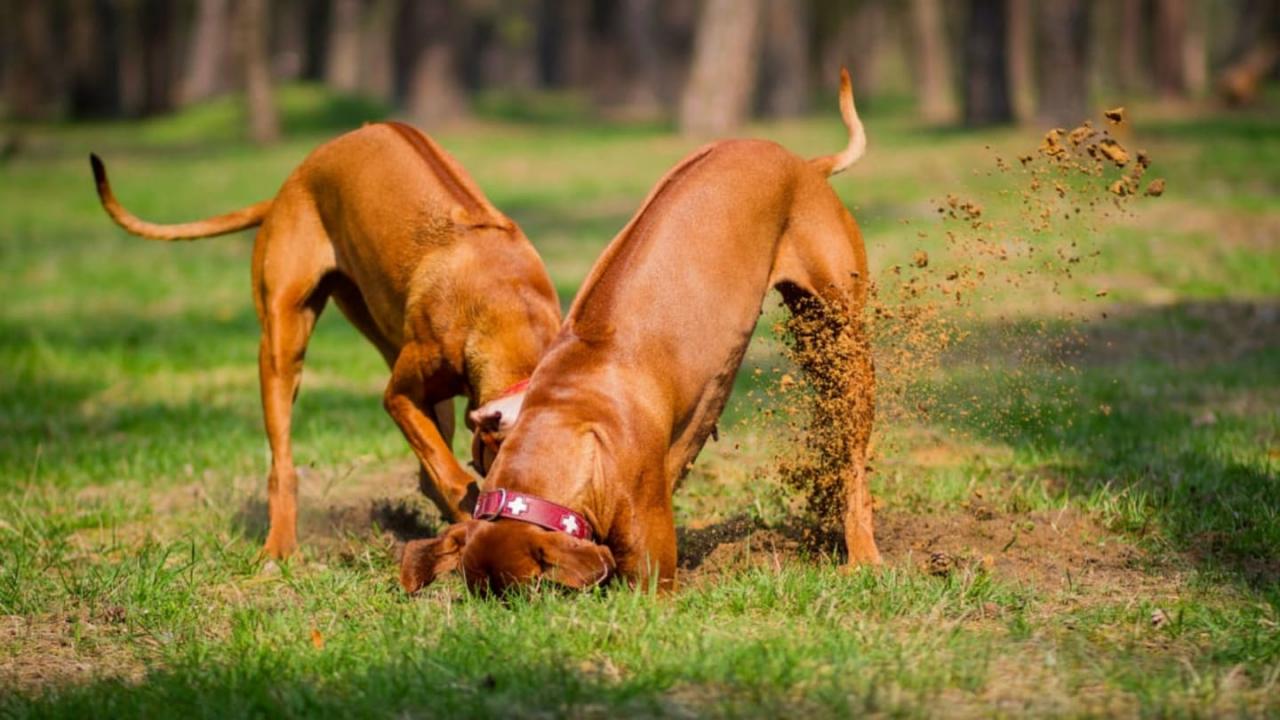Your dog has probably kicked their rear legs when pooping.
Some pet owners wonder if they can help their dogs bury poop.
Your dog may occasionally manage to throw some grass on top of it. But most often, you will find the poop lying in plain sight.
Why is your dog so bad at burying their own poop?
What Dogs Do After Pooping
Matilda, as well as Cow, go into a kick-frenzy after they poop.
Cow did it again this morning. She kicked into the poop between her feet on both her back paws. It’s the third time that she has done it. She usually moves to one side first before she kicks. If I don’t move fast enough I will have to clean her feet of poop before I let her back in.
Why would a puppy try to get dog poop all over her? Why would she want to avoid getting her feet cleaned?
Since we now have a kitten, I’m able to see how easy it is for animals to bury their own waste. Not that difficult. What’s the problem?
We can make a good guess as to what is going on by looking at the context, such as anatomy, other animal behaviors, and situations.

What is the Scent Marking on Poop?
It is likely that you are aware of the fact that certain dogs, particularly males, will lift their legs to pee vertically on objects to mark territory.
Did you know that dog poop also has a purpose? It helps them mark their territories.
Two glands on each side of the anus are emptied every time a pup poop, and a fishy, oily, pungent fluid is released. If your dog releases a foul smell when nervous or excited, you may be familiar with the anal gland liquid.
All dogs leave behind anal gland liquid, a distinctive scent, wherever they travel.
It makes sense for a dog to want his poop noticed rather than hidden. The dogs want to let other canines know that they were there, with their anal-gland smelly poopy signature.
Animal behaviorists theorize, for example, that dogs kick after they poop to spread their scent.
What are the Scent Glands on Paws?
Do dogs sweat? Do dogs sweat?
There are two different types of glands in dogs. Apocrine glands are found all over the body. The apocrine glands are responsible for releasing sweat directly into the follicles of your dog’s hair. This keeps the fur moisturized.
The merocrine glands are the sweat glands that release sweat onto the skin’s surface. Humans rely on these sweat glands to keep cool. This type of gland is only found on the paws of dogs. Dogs only sweat visibly from the pawpads. Although I’ve never seen it in action, a few dogs do sweat through their feet.
It is possible that the main function of mercocrine paw glands on a dog may be to add additional scent marks.
Your dog may kick their feet after they have pooped to release their scent.
Post-Pooping Zoomies
When dogs run in circles, they are called Zoomies or Frenetic Random Activities Periods (FRAPs). This is something you have probably witnessed after giving your dog a wash.
Stress can cause a dog to become frantic. When dogs are finally let out of the bath tub, they may be frantically shaking, rubbing, and running off that excess water.
The pooping process can also relieve stress and cause dogs to become a bit crazy. It could explain why some dogs kick so much.
Dogs Kicking Each Other Around
On a normal walk I see that my dogs will kick their legs a couple of times, but nothing more.
They kick more when there are dogs nearby, and especially if we’re at a new environment, like a park.
This is a powerful proof to me that dogs kick so other dogs will notice. This is their way of saying “I was there!” “I pooped!”